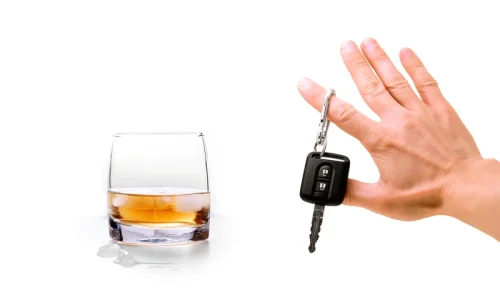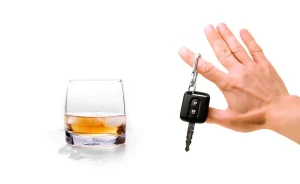
Alcohol-related anger and aggressive behaviors increase the chance of developing common mental health conditions, including depression, anxiety, and stress. Moreover, alcohol can increase the risk of bipolar disorder, dementia, mood disorders, and schizophrenia. Meditation can help clients to relax physical tension, become more self-aware, and work toward creating a healthy mind-body balance. Other holistic methods are often used during a comprehensive addiction and anger management treatment program as adjunctive, or complementary, treatment methods. Massage therapy can help to relieve physical tension and therefore promote mental clarity.
- However, some people are more likely than others to be angry when drinking alcohol.
- In addition to threatening others, this behavior harms you as well.
- It’s clear that they’re not just a challenge for individuals, but also for society as a whole.
Alcohol and Rage: What You Need to Know
- Intermittent explosive disorder involves repeated, sudden bouts of impulsive, aggressive, violent behavior or angry verbal outbursts.
- On the other hand, a happy drunk typically radiates positivity; they are often seen laughing excessively, engaging in friendly conversation, or dancing without inhibition.
- For that reason, abstaining from alcohol altogether may be the best way to prevent undesirable effects, such as relationship issues or legal trouble.
- Some people may become more angry or aggressive when they drink, in part because of alcohol’s effects on brain chemistry.
- To put it another way, if someone has an anger issue bubbling beneath the surface, alcohol might just bring it out into the open.
But as we get older, most of us learn how to regulate our emotions and improve our emotional intelligence. When you talk to a member of the Nugent Family Counseling Center team, you can count on compassion and honesty. Anger management treatment with our specialists is designed to help you control your feelings of anger. IED causes sudden anger and violent outbursts for no obvious reason. In addition to threatening others, this behavior harms you as well. Erin is a Nurse Practitioner with 8 years of experience in midwifery and women’s health.

Emotional detachment: when it’s healthy and when it’s toxic
They first consumed alcohol and were asked to recognize the emotions of different faces on a computer task. Specifically, they exhibited a reduced capacity to detect sadness and fear and a reduced tendency towards seeing happiness. While the study did not support a significant difference between groups high and low in anger, these results support the notion that such impairment in facial recognition may contribute to aggressive responding. The study concluded that alcohol increased the odds of physical aggression in those men who had high trait anger and poor anger management skills. It also noted that sexual aggression was higher with alcohol, even in men with low trait anger and reasonable anger management skills.

Inpatient Programs

When you have IED, you’re aware of what you are doing, but you’re unable to control it. Overall, exhibiting one or a combination of the above factors can increase your chances of becoming angry when intoxicated. Jennifer Chesak is a freelance medical journalist, editor, and fact-checker with more than two decades of experience and bylines in several national publications. Instead, each participant randomly lost the game about half the time and was led to believe another person was delivering shocks to them during each loss. But effects to other neurotransmitters, including gamma-aminobutyric acid (GABA) and glutamine, may also be involved.

Extreme emotions that are usually hidden from others, like anger and sadness, may be more noticeable when you drink because you’re less able to conceal and manage them. When they come out, others notice them because they’re not a part of the everyday social experience. Group therapy provides people with a chance to recognize and respond to their anger in a group setting. By connecting with others who struggle with PTSD anger, you can learn from their experiences while gaining additional perspective on your own triggers and behaviors. Next time you feel yourself becoming angry, make an effort to delay your reaction. This may be easier said than done, but allowing yourself time to process your emotions can help you remain more in control.

Influence of Alcohol on Emotional Regulation
Future research should incorporate stringent treatment fidelity methodology in order to document adherence to protocol. Sometimes, drinking alcohol can cause people to become an “angry drunk”. Moreover, alcohol lowers the levels of serotonin — a neurotransmitter that helps regulate our mood. It’s like the brain’s peacekeeping force is suddenly MIA, allowing a mob of rowdy emotions to take over. If you’ve ever wondered why a refreshing drink sometimes leads you down Anger Avenue, you’re not alone.
- And our orbitofrontal cortex (OFC), which is part of the PFC, helps calm feelings of rage and aggression.
- Her articles analyze the latest workplace trends and advise individuals wanting to level up their careers.
- If you or someone you love is battling aggression and alcohol misuse, help is available.
- So here’s my call to action – next time you see someone turning into an ‘angry drunk’, don’t turn a blind eye.
- While the study did not support a significant difference between groups high and low in anger, these results support the notion that such impairment in facial recognition may contribute to aggressive responding.
- So next time you observe someone drinking heavily at a gathering or bar scene try applying this guide.
Societal Implications of Angry Drunken Behavior
As an expert in behavioral psychology and substance use, I’ve spent years trying to unravel this mystery. The Adamson, et al. (2009) review suggests that self-confidence in avoiding relapse – and during-treatment improvements in self-confidence – is a consistent predictor of treatment outcomes (Adamson et al., 2009). The literature does not, alcohol and anger outbursts however, describe whether specific areas of self-confidence, such as confidence specifically related to coping with anger and related emotions, predict outcomes. Our emotional state before drinking can also influence how we behave under alcohol’s effect.
